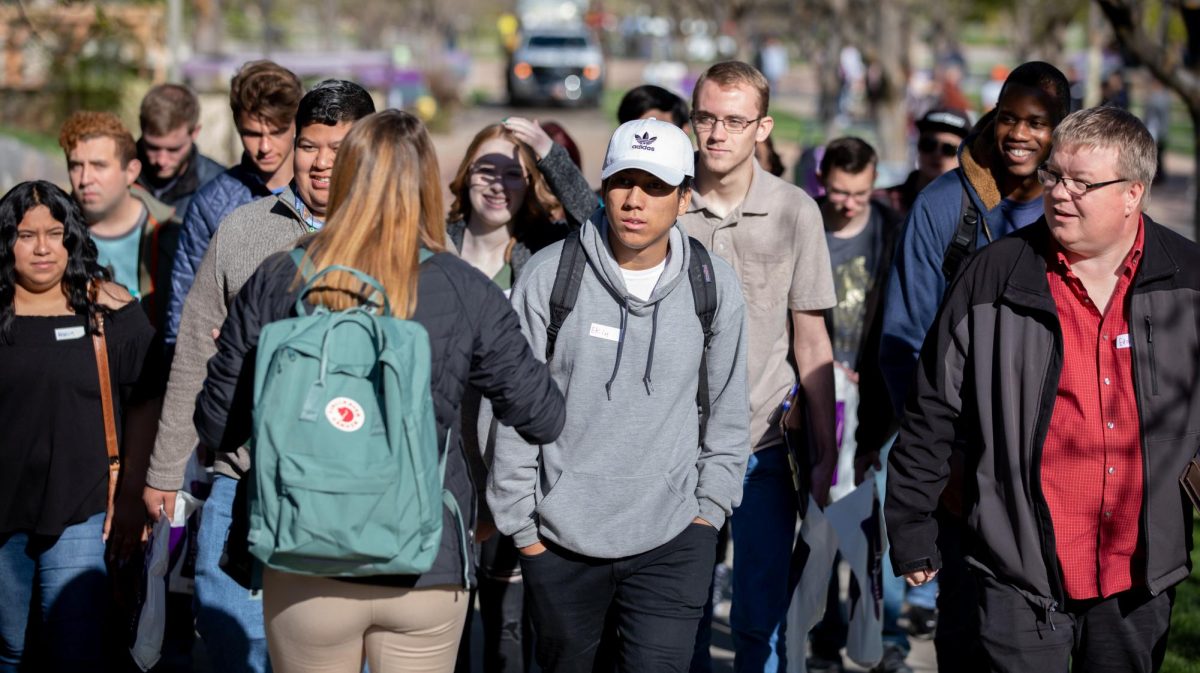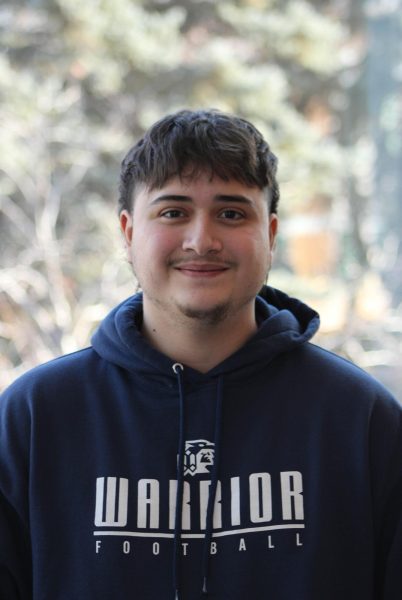Attending university can be a costly endeavor. It isn’t uncommon for out-of-state students to pay anywhere between $10,000 to $20,000 a year in tuition, fees and housing.
Weber State University provides accessible education for out-of-state students through scholarships and other financial aid opportunities. Non-resident students are often reliant on financial aid, and WSU aims to make higher education affordable.
“My scholarships were super important in my decision to attend Weber State,” WSU freshman Analis Mancillas said. “I would not have attended Weber if it weren’t for the scholarships.”
Scholarships are offered with two things in mind: merit and need. Scholarships don’t have to be repaid, making them an invaluable resource for non-resident students.
There are three academic scholarship opportunities available to students new to WSU. The Mt Ogden Scholarship, The Golden Spike Scholarship and the Waterfall Canyon Scholarship are all available for new Weber State students, but there are expectations to remain eligible for them.
The Mt Ogden scholarship is a four-year scholarship awarding $4,500 a semester toward out-of-state tuition, totaling at $36,000. To remain eligible for the scholarship, students must meet the nonresident WSU index score of 115 or higher, maintain full-time status and have a minimum cumulative GPA of 2.5.
The Golden Spike scholarship is a four-year $4,000 a semester scholarship, with a $32,000 total value toward out-of-state tuition. Students are expected to have a WSU index score of at least 105 and must maintain full-time status and a minimum of a 2.5 GPA.
The Waterfall Canyon scholarship is also a four-year scholarship offering $3,750 per semester, providing nonresident students with a total of $30,000 toward out-of-state tuition. The WSU index score expected for this award is as low as 90, but students must still maintain full-time status as well as a 2.5 cumulative GPA.
WSU isn’t only concerned with brand new college students; there’s also financial aid options available for transfer students.
Academic scholarship opportunities for transfer students are competitive and are awarded on a first-come, first-served basis. There are four scholarships available for transfer students.
The Ben Lomond Scholarship is a three-year, $4,000-per-semester scholarship with a total value of $24,000 applied toward out-of-state tuition. To be considered for the scholarship, students must have a 3.75 cumulative GPA or higher, maintain full-time status as well as maintain a 2.5 WSU GPA or higher.
The Skyline Trail Scholarship is a three-year, $3,750-per-semester award that provides $22,500 toward out-of-state tuition. Transfer students must have 3.5 or higher GPA, be enrolled full-time and maintain a 2.5 WSU GPA.
The Antelope Island Scholarship is a three-year award that offers $2,250 per semester, totalling $13,500 toward out-of-state tuition. Recipients are expected to transfer with a 3.0 GPA or higher while also enrolling full-time and maintaining a 2.5 WSU GPA.
The Malan’s Peak Scholarship is also a three-year award, awarding transfer students $1,750 per semester with a total of $10,500 applied to out-of-state tuition. Those applying for this scholarship must have a 2.75 GPA or higher, must maintain full-time status and may not drop below a 2.5 WSU cumulative GPA.
Scholarships aren’t the only way out-of-state students can receive financial aid. Students can also receive financial aid through tuition incentive programs.
Programs like the Alumni Legacy Program, the 100 Mile Non-Resident Partial Tuition Reduction and Western Undergraduate Exchange Program are options for students looking to attend WSU out-of-state.
The Alumni Legacy Program allows nonresident children and grandchildren of Weber State alumni to attend WSU and pay in-state tuition. To qualify for the program, the nonresident must be admitted and enrolled at WSU in any undergraduate program, have at least one parent or grandparent who has earned an associate degree or higher at WSU and must have a 2.5 highschool or transfer GPA.
The 100 Mile Non-Resident Partial Tuition Reduction offers out-of-state students living within 100 highway miles of WSU eligibility to have half of the difference between resident and nonresident tuition charges. In order to qualify, students must be admitted to WSU, have legal residence within 100 highway miles of WSU and the student must be enrolled as a first-time student to the Utah System of Higher Education.
Students participating in the 100 Mile Non-Residential Partial Tuition Reduction can stay participating in the program for eight semesters, not including the summer semester. Nonresident students will be able to pay only resident tuition if they choose to remain in attendance for the summer semester.
To remain eligible for the program, students must stay enrolled full time and maintain a 2.0 GPA or higher.
The Western Undergraduate Exchange Program is a financial aid opportunity that reduces tuition for nonresident students who live in the Western United States, including Alaska, Hawaii, the Northern Marianas Islands and Guam. WUE reduces tuition for nonresident students to pay 150% of the regular resident tuition.
To be eligible for WUE, out-of-state students must be an incoming freshman from high school or a transfer student with a minimum of a 2.0 GPA. WUE participants must also remain full time-time status and with a cumulative GPA of 2.0 or higher.
WUE must be annually submitted so that the Financial Aid and Scholarships Office is aware of your continued enrollment. This program is not available for students majoring in dental hygiene or nursing programs.
Although both tuition incentive programs and academic awards are available to out-of-state students, they are unable to be paired together, and students must choose between one or the other.
Those living out of state are encouraged to apply to WSU. With all the opportunities available, WSU makes strides to reach a higher demographic of people, not making distance an issue.
“I felt like a real effort was made to make Weber feel more available,” WSU sophomore Benjamin Bramwell stated.















